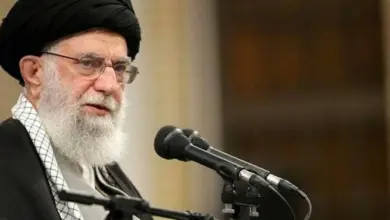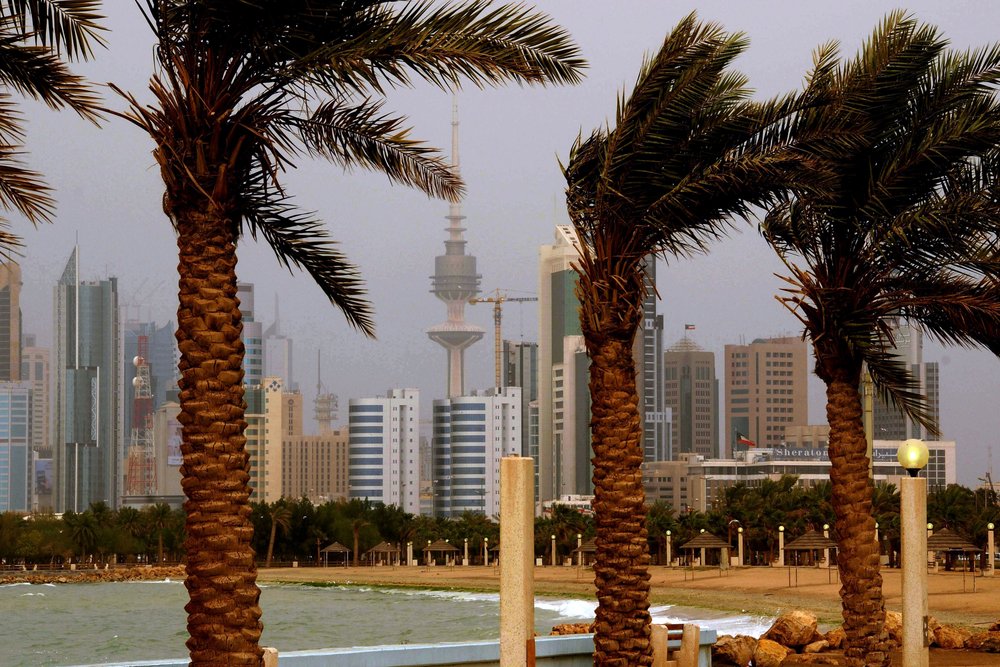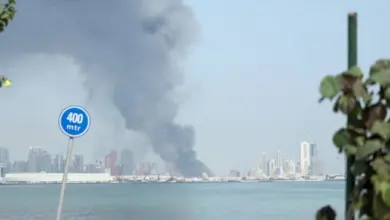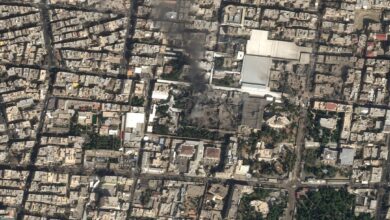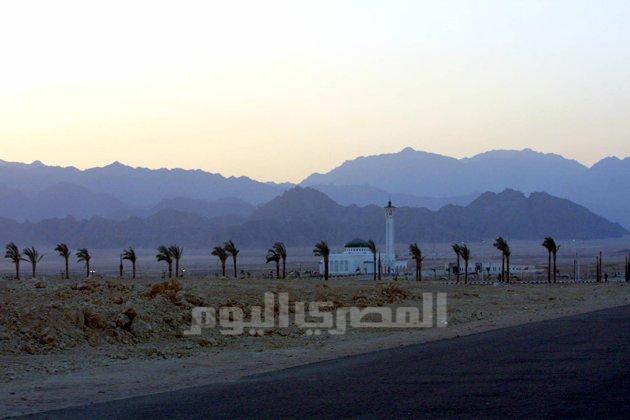
In a fictional scoop shortly before the presidential election, the daily newspaper Al-Dostour revealed a nefarious plot by the Muslim Brotherhood to dismantle the state.
Al-Dostour renewed its smear campaign a few days later after Brotherhood presidential candidate Mohamed Morsy’s victory was announced, saying the armed forces opted for a Morsy win because his loss would stir a long and dangerous cycle of violence.
The Sinai Peninsula plays an important part in all of these supposed scoops. According to Al-Dostour, if Morsy lost, armed Islamist groups in Sinai would facilitate the entry of gunmen from Hamas, the neighboring Islamist authority in Gaza. These gunmen would then embark on a series of attacks to destabilize the country and destroy the state.
The Sinai scare is not limited to Egyptian media though. Across Sinai’s eastern border, Israeli media sounded similar alarms about the growing terrorist presence in the peninsula. Media reported Israeli Defense Minister Ehud Barak warning Morsy of further attacks targeting Israel from Sinai at a meeting on Monday.
Columnist Ron Ben-Yishai wrote for the Israeli website Ynet that the Bedouins of Sinai hold “huge depots of heavy machine guns, RPG rockets and launchers of all types, anti-tank and anti-aircraft missiles, as well as advanced Grad rockets and worse.” He suggested they were “getting training from Palestinian terrorists from Gaza as well as from Global Jihad members.”
But inside Sinai’s mainland, the scare is dismissed. “We can’t say there are serious fears of an Islamic insurgency in Sinai,” General Sherif Ismail, a security adviser for North Sinai Governorate, told Egypt Independent. “Israel, like many parties, has a vested interest in making up dangers in Sinai.”
Ismail said Islamist groups were monitored in North and central Sinai, and limited to the desert, where they have not been able to flourish due to security forces. “If the situation is as bad as the media is portraying, you’d find these groups operating freely in cities,” he said. “They are not.”
Aref Abu Atta, the sheikh of the Akkour tribe in the North Sinai town of Sheikh Zuwayed, agrees. He said the scattered radical groups, some of which focus more on preaching than militancy, have been mostly formed and inspired by elements from outside Sinai, particularly leaders of Islamist groups in Upper and Lower Egypt who detainees from Sinai meet in prisons. Hundreds of Bedouins were thrown in jail after a series of terrorist attacks rocked Sinai between 2004 and 2006. Another group of outsiders comes from Gaza through tunnels, Abu Atta said.
There are an estimated 1,200 tunnels between the North Sinai town of Rafah and Gaza, which are used primarily for smuggling goods, but also sometimes for people. The tunnels were dug as a reaction to the blockade imposed by Israel and aided by Egypt since Hamas took power there in 2007.
On Sunday, infiltrators reportedly belonging to Hamas clashed with officers from the rival Fatah group in Arish, North Sinai’s capital. Injuries occurred on both sides, but no one was killed. About 350 officers who worked with Fatah’s leader in Gaza, Mohamed Dahlan, moved to Egypt in 2007 following Hamas’ takeover, one of Dahlan’s officers told Egypt Independent last year. Dahlan himself has repeatedly been accused of working with radical groups opposed to Hamas in a quest to weaken it.
Ismail believes anti-Hamas radical groups are the primary militants in the peninsula. References by security were made to such groups on different occasions, including when attackers from Sinai crossed into southern Israel and killed eight Israelis last year.
“That’s why the tunnels issue needs to be resolved once and for all,” said Atta. In 2009, Egypt started building a censor-equipped underground wall to stop the use of tunnels, a project which has stopped.
For Atta, the image of a proliferating Islamist militancy comes from an increase in inter-tribal violence and the settling of old feuds between Sinai residents and security forces. Indeed, most recent incidents of unrest in Sinai, from road blockings to the kidnappings of tourists, are perpetrated by detainees’ relatives to pressure security forces to release them.
The only incidents that could indicate the involvement of radical groups are the rockets fired from Sinai to Israel in April and June, and the blowing up of a pipeline supplying gas to Israel — an incident that has been repeated 13 times since last year.
Hassan Ali, a member of the prominent Sawarka tribe who fought in the Egypt-Israel War of Attrition, says he thinks these radical groups can do very little, but their eradication will demand a more robust security presence. “The [peace treaty with Israel] has to change to allow for a stronger military presence in Sinai,” he said. “If these groups are a real threat, then they will easily be ended through a military operation.”
But Israel has voiced vehement opposition to any suggestion that the peace accords, which place limitations on the presence of Egyptian troops near the border, may change.
Security forces say they are taking care of the job. Ismail said security is being restored through two main avenues: ending past disputes between the people of Sinai and the police, and changing police behavior.
Settling past disputes entailed issuing amnesties for some 163 convicts in trials related to drug trading and smuggling. Ismail added that another 157 cases are also awaiting amnesties, pending a security review. “We are working constantly with the sheikhs to return security to Sinai,” Ismail said.
People in Sinai, meanwhile, believe any meaningful stability will have to involve their collaboration. “The people of Sinai are capable of standing against any Islamist group if it would endanger the area,” Atta said confidently.
Mussad Abu Fagr, a prominent blogger from Sinai jailed by Hosni Mubarak’s regime for his criticism of the peninsula’s marginalization, agrees that Sinai can withstand potential threats.
“We are able to protect ourselves. Indeed, the state has done very little to protect Sinai. Only its people stand against all the dangers,” he said.
Abu Fagr does not find the Islamist presence in Sinai worrying. And with just a few sporadic groups, he doesn’t think the Brotherhood’s ascension to power will embolden them significantly, as others have suggested.
“The Brothers could make use of some of the religious groups here to widen their support base ahead of elections or control the street. But they won’t allow these groups to attack Israel, because they are pragmatic,” he said.
The real danger in Sinai for Abu Fagr is not Islamist groups, but any attempt to curb the quest for democracy that the Egyptian revolution has brought about.
“The tribes here don’t buy much into the Brothers’ discourse. They need to be part of the decision-making process. And that’s the only way to imagine a peaceful Sinai,” he said.
This piece was originally published in Egypt Independent's weekly print edition.

